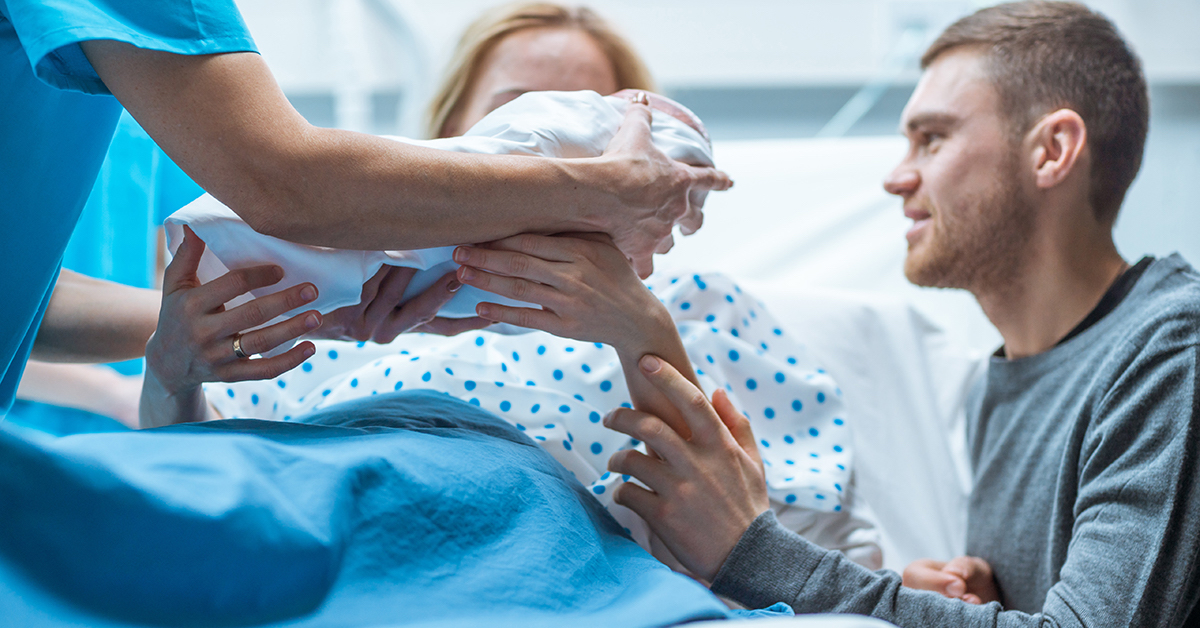 Whether you’re trying to get pregnant or pregnant already, you have probably done some research on what changes your body will undergo during pregnancy. A lot of people are familiar with the physical changes during pregnancy, but knowledge about what happens to your body after giving birth seems less common. Being pregnant transforms your body in a lot of ways, so it stands to reason that after the baby is born, it is something of a process to get back to normal. Here are some things you can expect to happen after you give birth:
Whether you’re trying to get pregnant or pregnant already, you have probably done some research on what changes your body will undergo during pregnancy. A lot of people are familiar with the physical changes during pregnancy, but knowledge about what happens to your body after giving birth seems less common. Being pregnant transforms your body in a lot of ways, so it stands to reason that after the baby is born, it is something of a process to get back to normal. Here are some things you can expect to happen after you give birth:
Post-Baby Belly
Once the baby is born, your belly won’t just bounce back to its pre-baby size. For a while after giving birth, you’ll still have a bit of a bump or some roundness in your belly. The uterus, abdominal muscles, and skin stretch a great deal throughout pregnancy. It can take weeks or even months for everything to shrink back.
Soreness
Unsurprisingly, giving birth will cause soreness. Vaginal deliveries will stretch and bruise the perineum (the area between the vagina and the rectum). Tearing in that area is also a possibility. This often makes sitting painful for a while after delivery. Taking sitz baths, cleansing with warm water after using the bathroom, and using ice packs with witch hazel can help with soreness in this area.
If you have a C-section, which is considered major abdominal surgery, you can expect pain and soreness around the area of the incision.
Other side effects from the anesthesia may include constipation and nausea. Your doctor can give you safe painkillers and will keep you in the hospital to recover for a few days.
Changes in the Breasts
Breast milk usually doesn’t come in until three to four days after you give birth. However, your breasts will produce small amounts of a thick yellowish substance called colostrum immediately after birth. Newborns are most alert during the first couple of hours after being born, so you should attempt to nurse during this time.
When you begin nursing, your nipples may get sore or chapped as you and your baby work to get the right latch. While you’re in the hospital, you should get help from the nurses or a lactation expert if needed so you can start correctly early on. As you continue to breastfeed and both you and your baby get better at it, discomfort should dissipate. If you continue to have issues, a lactation consultant can help.
Once the breast milk does come in, your breasts may increase in size (even if they’ve already gone up in size during pregnancy). Nursing frequently can help with the discomfort associated with full breasts.
Bleeding
Whether you have a vaginal birth or deliver by C-section, you will have bleeding after childbirth. It’s actually not just blood, but a discharge called lochia, which also consists of mucus and tissue from the lining of the uterus. Bleeding can be heavy for up to 10 days after giving birth. If you see clots or have sudden gushes of blood, this may also normal. But if you feel you are bleeding too much or the bleeding is heavy for an extended period, contact your doctor.
Retaining Water Weight
After giving birth, you will lose some weight right away due to the expulsion of amniotic fluid, the placenta, and of course the weight of the baby. However, you may have swelling and carry extra water weight for a week or so after delivery. You lose the weight through frequent urination and sweating (night sweats are commonly reported during the postpartum period).
Cramping
After giving birth, your uterus will continue to have contractions. This time, instead of trying to get the baby through the birth canal, these contractions are intended to tighten the uterus and get it back to its normal non-pregnant size. Known as after pains, many women report feeling them more while nursing. Luckily, after pains should stop being as noticeable in about a week.
Difficulties Going to the Bathroom
Your body has just gone through a lot physically, as you are already well aware. The strain of childbirth can lead to soreness in many places as we’ve touched on earlier, and this can, in turn, make it difficult to use the bathroom. A vaginal birth can bruise your bladder and make your perineum sore, making urination difficult. If you had a C-section it can also be difficult to pee after the catheter is removed. Anesthesia can also have an effect on bowel movements and cause constipation.
Mood Fluctuation
The day your baby is born will likely be one of the happiest of your life. You’ve just given birth to a little miracle of a person that you’ve spent much of the last year carrying with you. However, the period after you give birth can be highly emotional, with both highs and lows. This is due in part to the changing hormones that come with childbirth, but can also be caused by discomfort from the physical effects mentioned above, or feeling out of your depth when learning to care for a newborn. Then, there’s usually a jarring lack of sleep in the beginning. All this can lead to a perfect storm of mood swings. These mood swings are normal and to be unexpected. What’s referred to as postpartum or baby blues can leave you weepy or sad for seemingly no reason, but should only last a few days after you give birth.
To cope with these mood swings, go easy on yourself as much as possible. Give yourself time to adjust to this monumental change in your life. When family and friends offer to help with things, take them up on it. Take any opportunity you can to get rest. These steps can help you feel better and stabilize your mood.
If you experience more severe symptoms that prevent you from caring for yourself or your baby, you may be suffering from postpartum depression. If this is the case, you should talk to your partner, family, or a trusted friend about how you’re feeling. It’s often hard to confront, but it’s nothing to be guilty or ashamed about and admitting you need help is the best decision you can make. Contact your doctor as soon as possible to seek professional treatment.
—
At Green Valley OB/GYN we will be there to care for you throughout your pregnancy and during the postpartum period when your body is recovering from childbirth. If you have questions or concerns about what happens to your body after you give birth, call 336-378-1110. You can also access our patient portal to manage appointments and access other health information. Our doctors and nursing staff have years of experience providing care to women through all stages of life, so you can be confident that you’ll get the highest quality postpartum care available in the Greensboro area.
